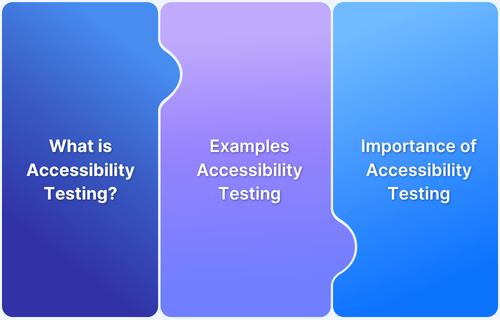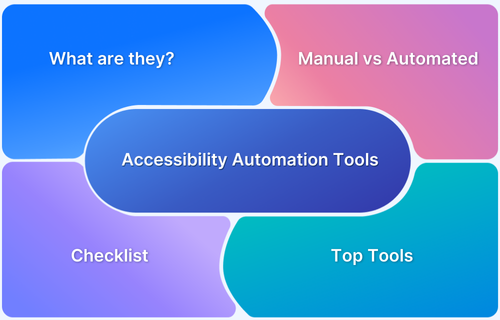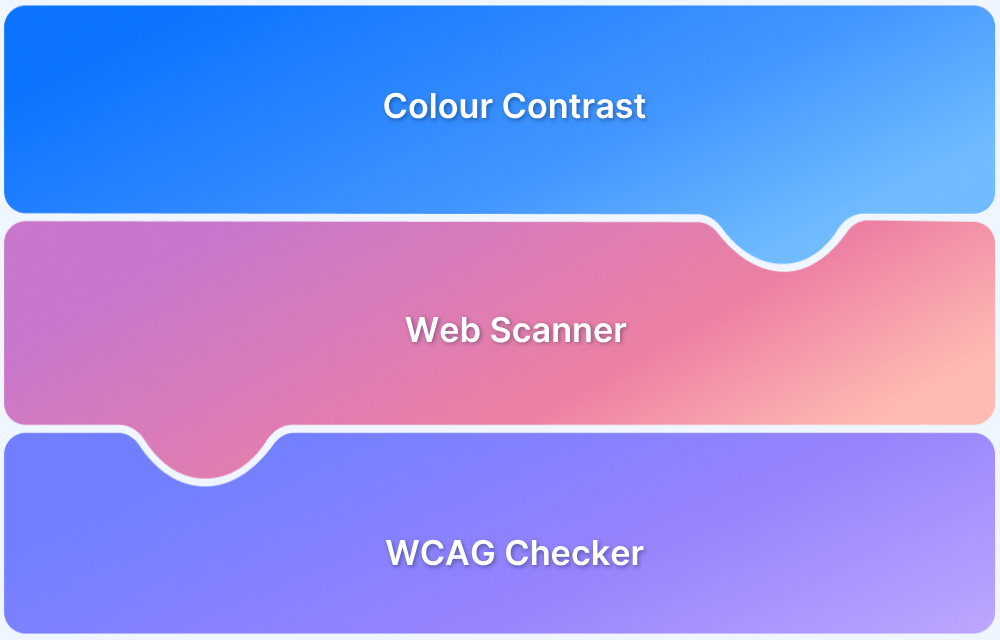Digital accessibility ensures that everyone has easy access to online information regardless of ability.
In line with this, House Bill 21-1110 mandates that government websites in Colorado be accessible to people with disabilities. It eliminates digital barriers and ensures equitable access to essential online services. The law requires clear, navigable, and inclusive site design to create a fair digital landscape for all users.
This article explains House Bill (HB) 21-1110 in detail, including who it applies to, important dates, and the risk of non-compliance.
What is House Bill (HB) 21-1110?
House Bill 21-1110, a Colorado law, requires state and local government websites to be accessible to people with disabilities. Passed in 2021, it enforces compliance with Web Content Accessibility Guidelines (WCAG) 2.1 AA standards by July 1, 2025, to ensure equitable access to digital material for all citizens.
Who Does HB 21-1110 Apply To?
HB 21-1110 affects a wide range of Colorado entities, including state agencies, local governments, and individuals or organizations in charge of government website content. Below is a detailed description of who it applies to.
State agencies
The law applies to all branches of state government, including:
- Executive branch agencies, including departments of health, transportation, and education.
- Legislative branch agencies, including the state legislature and its supporting offices.
- Judicial branch agencie,s including state courts and other administrative departments.
Local government entities
Local government units that are required to comply include:
- State administrative divisions
- Cities and towns
- Fire protection, water and sanitation, parks and recreation, and health service districts
- Public schools and colleges within designated areas
Content owners
The law also applies to individuals and organizations involved in digital content creation and management for government websites, including:
- Individuals inside government institutions that develop and manage digital content.
- Teams in charge of publishing and managing website information.
- Organizations contracted to create or administer material for state or local government websites.
Important Dates for House Bill 21-1110
These dates, mentioned below, demonstrate Colorado’s staged approach to implementing accessibility compliance. This allows time for preparation, implementation, and adjustment while emphasizing the necessity of making government digital services available to all citizens.
- July 1, 2021: HB 21-1110 became law and requires Colorado state and local government websites to be accessible to individuals with disabilities
- July 1, 2022: Deadline for state and local government entities to develop an accessibility strategy that outlines their compliance plan
- July 1, 2024: Original deadline for ensuring all public-facing and internal-facing technology, hardware, and software that entities purchase or develop meet accessibility standards
- April 25, 2024: HB 24-1454 became law and granted a one-year extension to HB 21-1110
- July 19, 2024: Entities must show “good faith efforts” toward digital accessibility by this date to qualify for the extension
- July 1, 2025: New compliance deadline that requires adherence to Web Content Accessibility Guidelines (WCAG) 2.2 Level AA standards
What is the risk of non-compliance with HB 21-1110?
Noncompliance with HB 21-1110 poses severe risks to state and local government organizations in Colorado:
- Legal consequences: Organizations that fail to follow accessibility guidelines may face litigation from people with impairments. Legal proceedings can be time-consuming, expensive, and detrimental to the entity’s reputation.
- Financial Penalties: Noncompliant agencies face severe fines, up to $3,500 per infraction. These fines can easily add up, particularly for websites with many accessibility concerns.
- Mandated Compliance: Courts can issue orders requiring immediate action to fix accessibility violations. This may lead to rushed, expensive updates that disrupt normal operations.
- Public Trust Erosion: Courts can issue orders requiring immediate action to fix accessibility violations. This may lead to rushed, expensive updates that disrupt normal operations.
What must you do to comply with House Bill 21-1110?
To follow House Bill 21-1110, organizations must:
- Create an accessibility plan: Create a clear strategy for making digital information accessible to all users, including those with impairments.
- Implement the Web Content Accessibility Guidelines (WCAG): Ensure that websites and digital platforms meet accessibility requirements, with a focus on making material perceivable, operable, comprehensible, and robust.
- Conduct accessibility audits: Regularly evaluate and test digital resources to identify and remove potential barriers for disabled users.
- Train Staff: Educate content authors, developers, and managers on accessibility standards and best practices for inclusive digital design.
- Maintain Continuous Improvement: Commit to continued accessibility initiatives, including regular updates to digital information to ensure it stays accessible and user-friendly for all.
How can you know if your website is compliant with HB-1110?
Meeting HB 21-1110 requires ensuring your website complies with WCAG 2.2 Level AA standards. BrowserStack makes accessibility testing seamless by enabling real-world testing on actual devices and browsers.
Test on BrowserStack to ensure your website meets accessibility standards before the July 1, 2025, deadline.
Below are key features of the BrowserStack Accessibility tool.
- Test on Real Devices: Ensure your website works flawlessly across desktops, tablets, and mobile devices just like real users experience it.
- Cross-Browser Testing: Verify accessibility across Chrome, Firefox, Safari, Edge, and more to catch inconsistencies.
- Screen Reader Compatibility: Use BrowserStack Live to test with assistive technologies like NVDA, JAWS, and VoiceOver on real operating systems.
- Spectra Engine for Faster, More Reliable Testing: BrowserStack’s Spectra Engine delivers high-speed, reliable, and scalable testing so teams to identify accessibility issues faster and with greater accuracy.
- Keyboard Navigation Testing: Check if users can navigate your site without a mouse, ensuring compliance with keyboard accessibility requirements.
- Instant Debugging: Identify and fix accessibility issues in real time with built-in developer tools.
How do you tackle existing compliance issues on your website?
To address existing compliance issues on websites in relation to HB 21-1110, follow these steps.
- Do a full accessibility audit, including automated and manual testing, to identify WCAG 2.2 Level AA breaches.
- Prioritize and resolve significant accessibility concerns, such as adding alternative text for images, increasing color contrast, and ensuring keyboard navigation is functional.
- Create and implement an accessibility plan that outlines how to remedy identified concerns and ensure continuous compliance.
- Train content creators and developers on accessibility best practices to avoid future breaches and guarantee that new material meets WCAG 2.2 Level AA requirements.
- To continuously improve accessibility, test and monitor the website using assistive technology on a regular basis, and gather input from users with disabilities.
Useful Resources for Accessibility
- Must-Have Chrome Extensions for Accessibility Testing
- Cypress Accessibility Testing (with Best Practices)
- Mobile App Accessibility Testing Checklist
- Top 15 Accessibility Automation Tools
- How to Automate Accessibility Testing
- How to Test Websites with Screen Readers
- Must-have Chrome extensions for WCAG Testing
- 508 Compliance Testing Tools
Conclusion
Ensuring compliance with HB 21-1110 is not just about avoiding legal and financial penalties, it’s about making digital spaces inclusive for all users. Meeting WCAG 2.2 Level AA standards ensures that people with disabilities can access vital government services without barriers.
With BrowserStack, you can easily test your website’s accessibility on real devices and browsers and offer a seamless experience to everyone. From screen reader compatibility to keyboard navigation testing, BrowserStack provides the necessary tools to identify and fix accessibility issues.
Frequently Asked Questions
1. What consequences can you expect if you are found to be non-compliant?
Noncompliance may lead to legal action, monetary penalties, attorney’s fees, and a statutory fine of $3,500 due to each plaintiff with a disability for each infraction.
2. Does HB-1110 compliance apply only to websites?
No, HB-1110 applies to all digital content, including websites, applications, documents, videos, and third-party tools offered by state and local governments in Colorado.
3. How is HB21-1110 different from other state accessibility laws?
Unlike other state laws, Colorado’s HB21-1110 establishes a clear, complete framework for digital accessibility. It mandates all government digital content to satisfy stringent criteria and provides detailed instructions for compliance.







